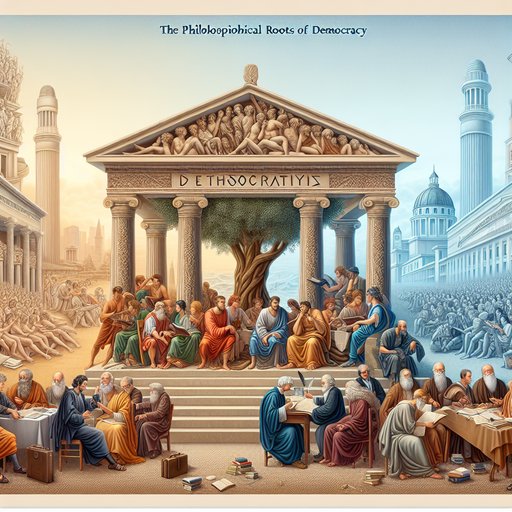
In the vast tapestry of human history, the emergence of democracy and constitutional governance stands as a defining chapter. The philosophical underpinnings of these societal developments reveal not only the evolution of political thought, but also offer profound insights into human existence and ethics. The story begins in ancient Greece, traces through the enlightenment era, and culminates in the modern democratic societies we see today.
In the bustling city-state of Athens, around 508 BC, democracy was born. The philosopher Protagoras, often known as the 'first democrat', championed the radical idea that 'man is the measure of all things'. This assertion was transformative, placing human beings, rather than gods or kings, at the center of moral and political judgment. Fast forward to the Enlightenment era, philosophers like John Locke and Jean-Jacques Rousseau further enriched the democratic discourse.
Locke advocated for 'government of the people, by the people, for the people', stressing the significance of consent, while Rousseau highlighted the social contract, underlining mutual obligations between rulers and the ruled. In the 18th century, these ideas bore fruit in the American and French revolutions. The American Declaration of Independence and the French Declaration of the Rights of Man and Citizen, both embody the philosophical essence of democracy - the sanctity of individual rights and the rule of law. The constitution, another seminal concept, emerged as a way to safeguard these rights.
The philosopher Montesquieu advocated for the separation of powers, a cornerstone of constitutional governance, to prevent the concentration of authority and protect individual freedom. However, the road to democracy and constitutional governance was far from smooth. The 19th and 20th centuries saw a tumultuous struggle between democratic ideals and authoritarian tendencies. Yet, the resilience of democracy testified to the strength of its philosophical foundations.
In the contemporary context, democracy remains a work in progress. Persistent issues of social inequality, corruption, and populism challenge its efficacy. Yet, the philosophical ideals of human dignity, liberty, and the rule of law continue to inspire democratic reform. In conclusion, the philosophical foundations of democracy and constitutional governance are intricately linked to our understanding of human existence and ethics.
These ideals, born in ancient Greece, refined during the Enlightenment, and nurtured through centuries of struggle, are testament to humanity's enduring quest for a just and equitable society. Our story ends here, but the evolution of democracy is an ongoing journey. As we grapple with new challenges, the philosophical roots of our democratic heritage can guide us toward a more humane and ethical future.























































